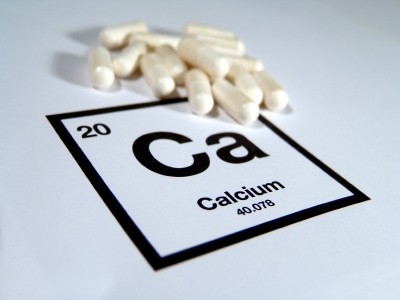Micronutrient insufficiencies: ‘The DGAC is turning a blind eye to this problem because they are preaching an ideal’

“They [the DGAC] are turning a blind eye to this problem because they are preaching this ideal [of a healthy diet],” Dr Frei told NutraIngredients-USA.
Only a small proportion of people in the US actually follow the Dietary Guidelines for Americans. “As a result, there are quite significant micronutrient insufficiencies and deficiencies in the American population," said Dr Frei. "A lot of people are not meeting the recommended intake levels of vitamins A, C, D, E, and K, and for calcium, potassium, and magnesium.”
The numbers themselves make for concerning reading: According to NHANES data, 50% of Americans are not making the Institute of Medicine’s recommendations for vitamin A, 40% for vitamin C, and over 90% for vitamins D and E. For potassium, 98% are not meeting the requirements. For calcium and magnesium it is 50% and 60%, respectively.
“This data is not new,” said Dr Frei, “but this is information that is not getting enough attention.”
“This is a significant problem,” he added. “We should do something about this, but the Dietary Guidelines for Americans think that this can be achieved from a healthy diet. My point is that yes, put a healthy diet first, but next should be supplements.”
“The committee behind the Dietary Guidelines thinks that if you do that [recommend supplements] people will not eat a healthy diet. Supplements are not a replacement, they supplement they diet.”
PHS II
Dr Frei advocates for a daily multivitamin to help fill nutrient gaps. Indeed, following publication of results from the Physicians’ Health Study (PHS) II study in 2012 that showed that a daily multivitamin may reduce the risk of cancer by a modest 8%, Dr Frei stated: “Quite simply, at around a penny a day a multivitamin is the cheapest health insurance a person will ever buy.”
PHS II is the only large-scale, randomized, double-blind, placebo-controlled trial investigating the long-term effects of a common multivitamin in the prevention of chronic disease, and included almost 15,000 male physicians followed for over a decade.
Many randomized clinical trials (RCTs) involving vitamins and minerals have yielded disappointing results, with many in the nutrition science field questioning if RCTs are even a good model for assessing the effects of micronutrients.
“RCTs work very well for pharmaceuticals, but they have severe limitations when applied to micronutrients,” said Dr Frei. “Many don’t consider the dose-response curve of the participants. If you don’t know where your subject is on that curve, you don’t know if you are capable of changing their status for that nutrient.
“Also, you never have a true placebo group: You’re just comparing a group with potentially lower levels with a group with higher levels.
“A third limitation is that vitamin and mineral trials often recruit people who are healthier than the average population because they are interested in participating. These people usually have a better health status to start with.”
“To really see an effect of vitamin and mineral supplementation you really need to supplement for more than a decade. Very few health studies achieve that. What did? PHS II, and look what we found – an 8% reduction in cancer risk.
“But even then the medical community turned around and questioned it!”















